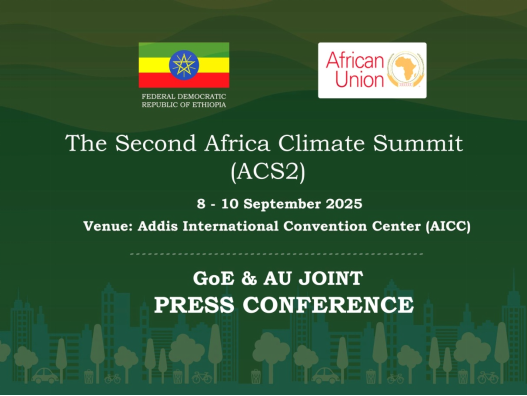
Africa’s stance on the climate catastrophe is influenced by a number of elements such as its particular vulnerabilities, its share of global emissions, and the demand for just solutions. Africa, therefore, constantly takes a stand to reduce its susceptibility to the effects of climate change. Even though the continent contributes very little to global greenhouse gas emissions, it is among the areas most impacted by climate change. It also experiences harsh effects including food insecurity, desertification, droughts, and floods, which endanger livelihoods and make poverty worse.
As a result, Africa advocates for climate justice. African nations emphasize the importance of climate justice, stating that wealthier countries, which have historically contributed the most to greenhouse gas emissions, hold a greater responsibility for combating climate change. African leaders urge for appropriate compensation and assistance with adaptation and mitigation measures.
In addition, African nations prioritize adaptation measures to increase resilience against the effects of climate change due to the continent’s high level of vulnerability. This includes making investments in water management, sustainable agriculture, and weather-resistant infrastructure.
The continent also values renewable energy. Africa has a large potential for renewable energy sources like sun, wind, and hydropower. Many African countries urge for investments in clean energy technologies to meet their energy demands while minimizing dependency on fossil fuels.
More significantly, African countries take an active role in international climate discussions such as the United Nations Framework Convention on Climate Change (UNFCCC) and the Paris Agreement. They urge increased pledges from developed countries to support climate action through financial aid and technology transfer. They also promote regional initiatives. Several regional frameworks and projects such as the African Union’s Agenda 2063 and the African Adaptation Initiative, seek to fully address climate change and promote sustainable development across the continent.
In light of these facts, Africa organized its own climate summit. Kenya hosted the first Africa Climate Summit (ACS) in March 2023. Delivering cutting-edge climate finance and green growth solutions to Africa and the rest of the globe was the primary goal of the first summit.
The conference concluded with commitments and announcements of USD 26 billion from public, private, and multilateral development banks, charitable foundations, and other development financing partners. In this regard, the initial ACS was successful. The summit also concluded with a declaration that it will be held biennially, with the next ACS scheduled for 2025.
In a similar vein, this year will see the ACS2. Ethiopia is, therefore, completing the necessary preparations for it. This summit is a crucial opportunity to demonstrate Africa’s will to address both developmental issues and climate change. As they strive to accomplish sustainable development goals in the face of climate adversity, it will pave the way for more collaboration between African countries and the international community.
Ethiopian Prime Minister Abiy Ahmed (PhD) said that Ethiopia, the Land of Origins, will host the Second Africa Climate Summit (ACS2) from September 8 to 10, 2025, in collaboration with the African Union. The summit, themed “Green Talks and Green Actions,” will promote Nature-Based Solutions as a crucial component of Africa’s climate policy with an emphasis on greening the continent again and forging African solidarity.
The Premier added that as Ethiopia launches its Green Legacy season, its preparations reflect a deep commitment to practical climate solutions. Hence, “The call is clear: invest in nature, scale proven solutions, and embrace a model where ecology drives the economy. We look forward to welcoming you.
Minister of Planning and Development, Fitsum Assefa (PhD) stated that the ACS2 would be critical in accelerating solutions for a more resilient future. The summit, as decided at the recent African Union Summit, intends to accelerate global solutions and financing. The conference will serve as a catalyst for global climate solutions while also improving access to climate financing for Africa’s long-term development.
She highlighted that Ethiopia’s election to host this summit reflects its longstanding commitment to climate resilience and sustainable development. Besides, “The Government of Ethiopia has long demonstrated its commitment to climate action which is evidenced by initiatives such as the Climate-Resilient Green Economy (CRGE) Strategy, launched in 2011, which has since become a cornerstone of the country’s 10-Year Development Plan.”
The Minister also noted that Ethiopia continues to translate its climate commitments into tangible results through nationally recognized flagship initiatives. According to her, these include the Green Legacy Initiative, which saw over 40 billion tree seedlings planted between 2019 and 2023, and ambitious programs in renewable energy, e-mobility, climate-smart urban planning, sustainable land management, and watershed development.
She emphasized that the summit will serve as a platform to showcase nature-based solutions, promote climate finance, and explore investment opportunities. Moreover, the event is expected to bring together approximately 25,000 participants, including heads of state, global climate leaders, civil society organizations, academics, and private sector representatives.
The summit’s theme, “Green Talks and Green Actions,” underscores its focus on actionable, and scalable solutions for climate resilience.
African Union Commissioner for Agriculture, Rural Development, Blue Economy, and Sustainable Environment, Moses Vilakati, stated that the urgency of the summit is given the continent’s vulnerability to climate impacts.
“Although Africa contributes just 4% of global greenhouse gas emissions, it bears the brunt of climate change’s consequences,” he said, adding, “The continent is facing unprecedented threats to food and water security, public health, and critical infrastructure.”
Vilakati noted that Africa requires 250 billion US Dollars per year to fund climate adaptation and mitigation, but now receives only 30 billion. So, the ACS2 is imperative for finance channels and worldwide collaboration to close the large financing gap.
“The summit will foster high-level dialogue and action to support Africa’s transition toward a climate-resilient and green development pathway,” he stated.
Indeed, Africa’s stance on the climate crisis is one of the urgencies and demands for justice, emphasizing the importance of international collaboration, financial support, and adaptation while leveraging the continent’s renewable energy potential. As a result, the ACS2 is important in serving as a forum for highlighting this and other African-specific issues.
BY EPHREM ANDARGACHEW
THE ETHIOPIAN HERALD WEDNESDAY 18 JUNE 2025




